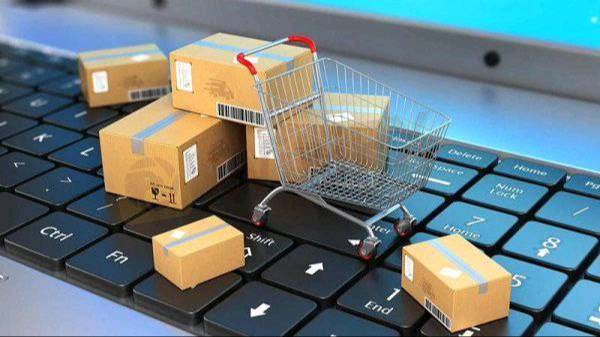
2025-01-18 00:01
A l'instar de l'industrieHow Global Platforms Address African Shipping .
#firstdealofthenewyearchewbacca
Key
Global platforms are addressing African shipping challenges by introducing innovative solutions in logistics and last-mile delivery. These efforts focus on overcoming infrastructural, regulatory, and operational obstacles unique to the continent. Here's how they are tackling these challenges:
Key Shipping Challenges in Africa
Infrastructure Gaps: Limited road networks, underdeveloped ports, and inadequate rail systems.
High Shipping Costs: Due to fragmented supply chains and inefficient processes.
Regulatory Barriers: Complex customs procedures and inconsistent regulations.
Last-Mile Delivery Issues: Poor addressing systems and difficulty accessing remote areas.
Innovations in Logistics
Technology Integration:
Real-Time Tracking: GPS and IoT-enabled devices allow real-time monitoring of shipments, improving transparency and efficiency.
Digital Freight Marketplaces: Platforms like Kobo360 and Lori Systems connect shippers with truckers to optimize cargo transportation.
Route Optimization:
AI and machine learning are used to identify the most efficient delivery routes, reducing transit times and fuel costs.
Blockchain for Customs:
Blockchain technology simplifies cross-border trade by streamlining customs documentation and reducing delays.
Localized Warehousing:
Companies like Amazon and DHL are investing in local fulfillment centers to shorten delivery times and reduce logistics costs.
Last-Mile Delivery Innovations
Use of Drones:
Companies like Zipline deliver medical supplies to remote areas using drones, bypassing road infrastructure challenges.
Crowdsourced Delivery:
Platforms like Glovo and Jumia leverage local couriers for faster and more cost-effective last-mile delivery.
Mobile Addressing Systems:
Solutions like what3words provide precise geolocation-based addresses for areas lacking formal addressing systems.
E-Commerce-Specific Solutions:
Platforms like Jumia and Konga use local distribution networks and partnerships to enhance delivery reliability.
Micro-Hubs:
Establishing micro-fulfillment centers in urban and rural areas to act as pickup or redistribution points for deliveries.
Global Collaboration and Investments
Partnerships:
Collaborations between global and local players (e.g., DHL with African logistics startups) to leverage regional expertise.
Infrastructure Projects:
Investment in ports, roads, and railways by global organizations (e.g., China's Belt and Road Initiative in Africa).
Regulatory Support:
Engaging with African governments to harmonize trade policies and improve customs processes.
Impact of Innovations
Lower Costs: Optimized routes and efficient processes reduce shipping expenses.
Faster Deliveries: Technology and localized solutions minimize transit times.
Expanded Reach: Drones and micro-hubs enable deliveries in remote and underserved regions.
Job Creation: Crowdsourcing and local partnerships provide economic opportunities.
By leveraging technology, partnerships, and innovative delivery models, global platforms are transforming logistics and last-mile delivery in Africa, paving the way for improved trade and economic growth.
J'aime 0

Faison Boniphace
Trader
Discussions recherchées
A l'instar de l'industrie
WikiFX recrute: Un(e) spécialiste e-marketing Forex à temps partiel
A l'instar de l'industrie
WikiFX recrute un(e) spécialiste marketing
A l'instar de l'industrie
Tirages au sort WikiFX - Tentez votre chance pour gagner un crédit d’appel !
A l'instar de l'industrie
Chemin à la fortune : Indications de l'activité Airdrop WikiBit
Analyse de marché
construction
A l'instar de l'industrie
Route à la Fortune : Indications de l'activité Airdrop Spécial WikiBit
Catégorisation des marchés

Plateformes

Signalement

Agents

Recrutement

EA

A l'instar de l'industrie

Marché

Indicateur
How Global Platforms Address African Shipping .
 Tanzanie | 2025-01-18 00:01
Tanzanie | 2025-01-18 00:01#firstdealofthenewyearchewbacca
Key
Global platforms are addressing African shipping challenges by introducing innovative solutions in logistics and last-mile delivery. These efforts focus on overcoming infrastructural, regulatory, and operational obstacles unique to the continent. Here's how they are tackling these challenges:
Key Shipping Challenges in Africa
Infrastructure Gaps: Limited road networks, underdeveloped ports, and inadequate rail systems.
High Shipping Costs: Due to fragmented supply chains and inefficient processes.
Regulatory Barriers: Complex customs procedures and inconsistent regulations.
Last-Mile Delivery Issues: Poor addressing systems and difficulty accessing remote areas.
Innovations in Logistics
Technology Integration:
Real-Time Tracking: GPS and IoT-enabled devices allow real-time monitoring of shipments, improving transparency and efficiency.
Digital Freight Marketplaces: Platforms like Kobo360 and Lori Systems connect shippers with truckers to optimize cargo transportation.
Route Optimization:
AI and machine learning are used to identify the most efficient delivery routes, reducing transit times and fuel costs.
Blockchain for Customs:
Blockchain technology simplifies cross-border trade by streamlining customs documentation and reducing delays.
Localized Warehousing:
Companies like Amazon and DHL are investing in local fulfillment centers to shorten delivery times and reduce logistics costs.
Last-Mile Delivery Innovations
Use of Drones:
Companies like Zipline deliver medical supplies to remote areas using drones, bypassing road infrastructure challenges.
Crowdsourced Delivery:
Platforms like Glovo and Jumia leverage local couriers for faster and more cost-effective last-mile delivery.
Mobile Addressing Systems:
Solutions like what3words provide precise geolocation-based addresses for areas lacking formal addressing systems.
E-Commerce-Specific Solutions:
Platforms like Jumia and Konga use local distribution networks and partnerships to enhance delivery reliability.
Micro-Hubs:
Establishing micro-fulfillment centers in urban and rural areas to act as pickup or redistribution points for deliveries.
Global Collaboration and Investments
Partnerships:
Collaborations between global and local players (e.g., DHL with African logistics startups) to leverage regional expertise.
Infrastructure Projects:
Investment in ports, roads, and railways by global organizations (e.g., China's Belt and Road Initiative in Africa).
Regulatory Support:
Engaging with African governments to harmonize trade policies and improve customs processes.
Impact of Innovations
Lower Costs: Optimized routes and efficient processes reduce shipping expenses.
Faster Deliveries: Technology and localized solutions minimize transit times.
Expanded Reach: Drones and micro-hubs enable deliveries in remote and underserved regions.
Job Creation: Crowdsourcing and local partnerships provide economic opportunities.
By leveraging technology, partnerships, and innovative delivery models, global platforms are transforming logistics and last-mile delivery in Africa, paving the way for improved trade and economic growth.
J'aime 0
Je veux faire un commentaire aussi.
Poser une question
0commentaires

Aucun commentaire pour l'instant. Soyez le premier de faire un commentaire !

Poser une question
Aucun commentaire pour l'instant. Soyez le premier de faire un commentaire !